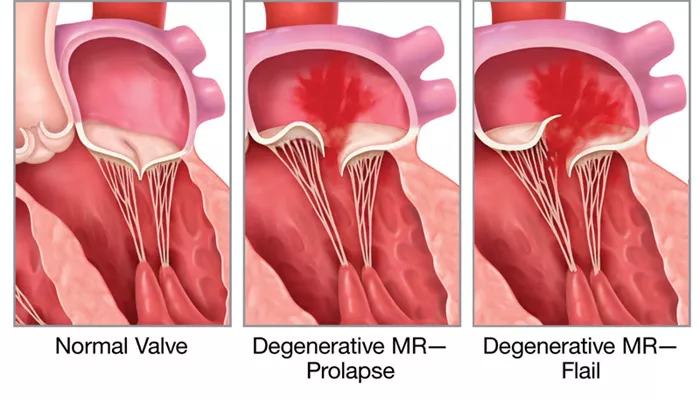Heart valve disease is a significant health concern that affects millions of individuals worldwide. The heart has four valves—mitral, aortic, tricuspid, and pulmonary—that play crucial roles in regulating blood flow through the heart’s chambers.
When these valves become diseased, they can either become narrowed (stenosis) or leaky (regurgitation), leading to various complications. Understanding how long one can live with heart valve disease involves considering several factors, including the type of valve affected, the severity of the disease, and the treatment options available.
Types of Heart Valve Disease
Heart valve disease can manifest in different forms:
Aortic Stenosis: This condition occurs when the aortic valve narrows, restricting blood flow from the heart to the rest of the body.
Mitral Regurgitation: In this condition, the mitral valve does not close properly, allowing blood to flow backward into the left atrium.
Tricuspid Regurgitation: Similar to mitral regurgitation but affecting the tricuspid valve.
Pulmonary Stenosis: This involves narrowing of the pulmonary valve, which obstructs blood flow from the right ventricle to the lungs.
Factors Influencing Life Expectancy
Several factors influence life expectancy for individuals with heart valve disease:
Severity of Disease: The degree of stenosis or regurgitation significantly impacts outcomes. Mild cases may not require immediate intervention and often have a good prognosis.
Age: Older adults generally have a lower life expectancy due to age-related decline in overall health and increased comorbidities.
Comorbid Conditions: The presence of other health issues such as diabetes, hypertension, or coronary artery disease can complicate treatment and affect survival rates.
Treatment Options: Surgical interventions such as valve repair or replacement can significantly improve life expectancy.
Survival Rates by Valve Type And Treatment
Survival rates vary depending on the specific type of heart valve disease and whether surgical intervention is performed.
Here’s a detailed look at survival statistics:
Aortic Valve Replacement (AVR)
5-Year Survival Rate: Approximately 94% for patients undergoing aortic valve replacement surgery.
10-Year Survival Rate: About 84% for those who have undergone AVR.
Median Survival Time: In low-risk patients aged 60 to 64 years, median survival can reach up to 16.2 years post-surgery, while those aged 85 years or older may have a median survival of about 6.1 years.
Mitral Valve Replacement
5-Year Survival Rate: Roughly 64% following mitral valve replacement surgery.
10-Year Survival Rate: Approximately 37%.
Pulmonary Valve Replacement
5-Year Survival Rate: About 96% for pulmonary valve replacement.
10-Year Survival Rate: Approximately 93%.
Tricuspid Valve Replacement
5-Year Survival Rate: Around 79% following tricuspid valve replacement surgery.
10-Year Survival Rate: Approximately 49%.
Long-Term Outcomes Without Surgery
In cases where surgical intervention is not performed, life expectancy can be significantly reduced:
For severe mitral valve regurgitation without treatment, studies suggest a one-year mortality rate of about 25%.
Severe aortic regurgitation untreated leads to an estimated life expectancy of only two years if it progresses to congestive heart failure.
Importance of Early Diagnosis And Treatment
Early diagnosis and management of heart valve disease are crucial for improving outcomes. Regular monitoring through echocardiograms can help detect changes in valve function before symptoms worsen. Patients with mild symptoms may not require immediate treatment but should be evaluated regularly to track any progression.
Conclusion
Heart valve disease presents varying degrees of risk and potential outcomes based on numerous factors. While many patients can expect good survival rates following surgical interventions, those with untreated severe conditions face significant risks. It is essential for individuals diagnosed with heart valve disease to work closely with their healthcare providers to determine the best course of action tailored to their specific circumstances.
In summary, understanding life expectancy with heart valve disease requires consideration of individual health profiles, types of valvular conditions, and treatment options available. Regular follow-ups and timely interventions can lead to improved quality of life and longevity for affected individuals.
Related topics:
- How Long Can You Live with Mild Mitral Valve Regurgitation?
- What Are The Symptoms of A Partially Blocked Heart Artery
- What Causes Heart Bypass Surgery?

